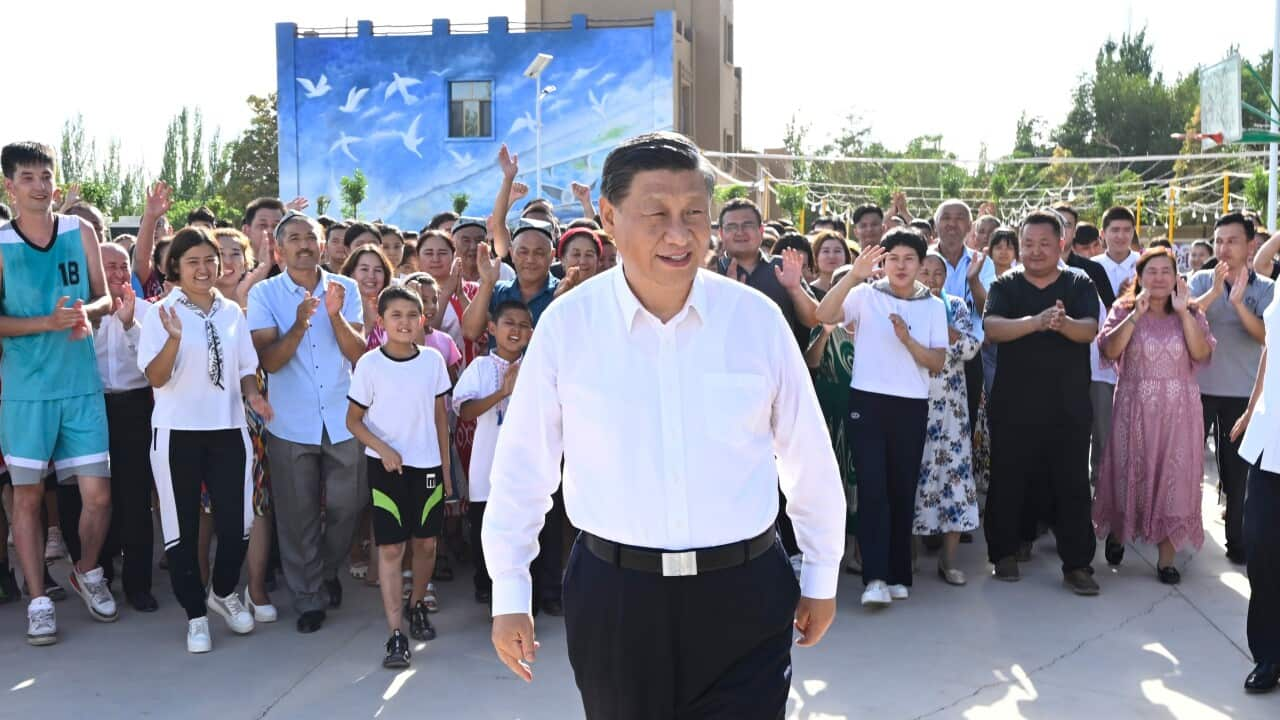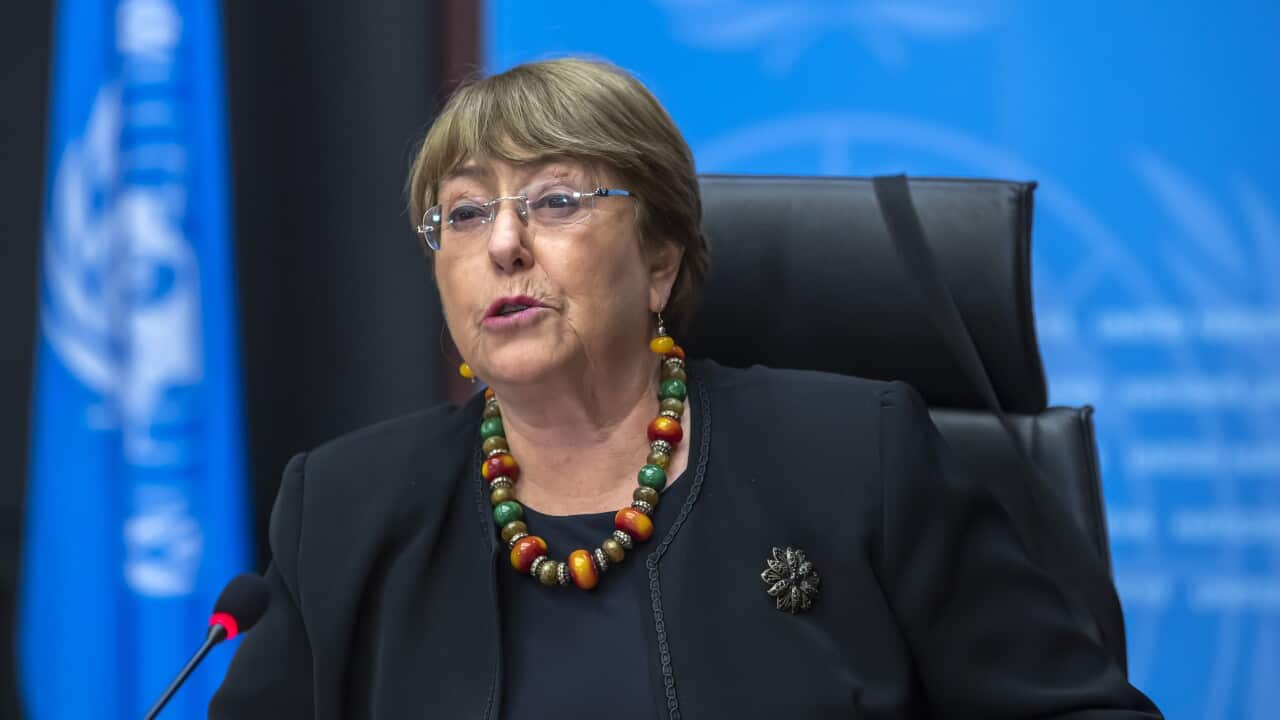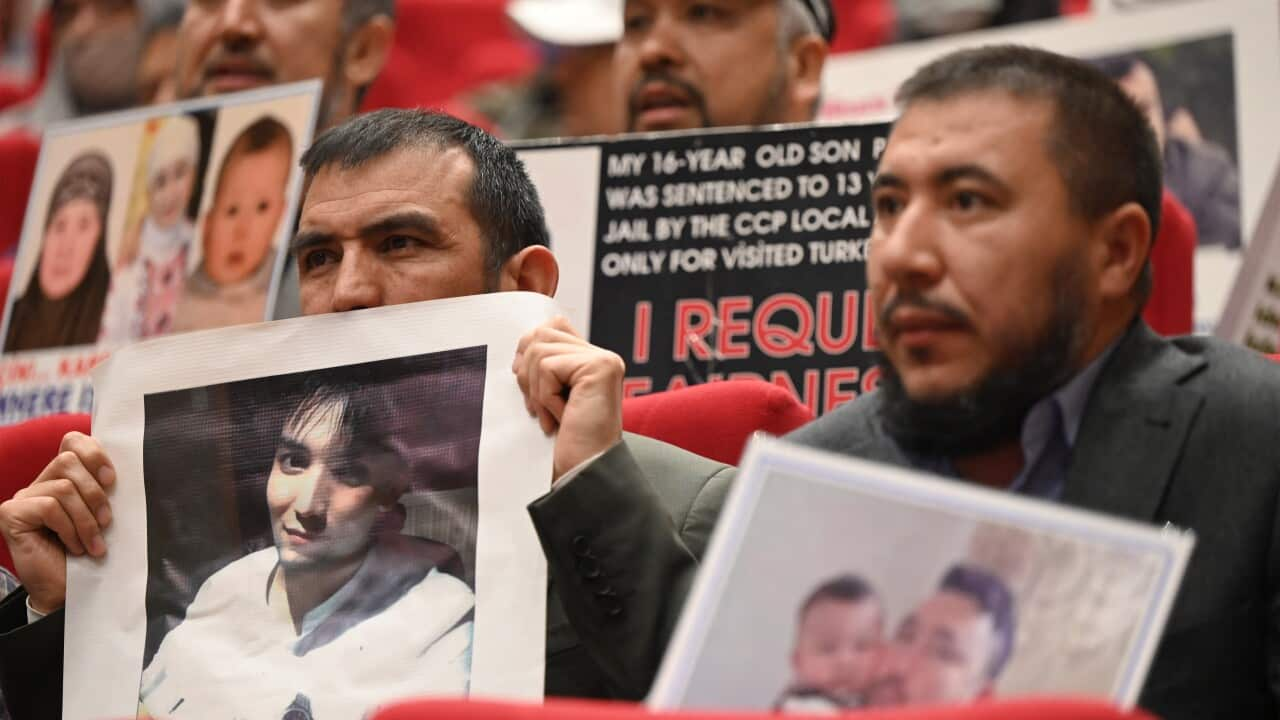China is asking the United Nations human rights chief to bury a highly-anticipated report on human rights violations in Xinjiang, according to a Chinese letter seen by Reuters and confirmed by diplomats from three countries who received it.
United Nations High Commissioner from civil society for being too soft on China during a May visit and has since said she will refrain from seeking a second term for personal reasons.
But before she leaves at the end of August, she has pledged to publish a report on the western Chinese region of Xinjiang.
Why is China trying to get the report buried?
Rights groups accuse Beijing of abuses against Xinjiang's Uyghur people, including the mass use of forced labour in internment camps. China has denied the allegations.
The letter authored by China expressed "grave concern" about the Xinjiang report and aims to halt its release, said four sources - the three diplomats and a rights expert who all spoke on condition of anonymity. They said China began circulating it among diplomatic missions in Geneva from late June and asked countries to sign it to show their support.
"The assessment (on Xinjiang), if published, will intensify politicisation and bloc confrontation in the area of human rights, undermine the credibility of the OHCHR (Office of the High Commissioner for Human Rights), and harm the cooperation between OHCHR and member states," the letter said, referring to Ms Bachelet's office.
"We strongly urge Madame High Commissioner not to publish such an assessment."
Liu Yuyin, a spokesperson for China's diplomatic mission in Geneva, did not say whether the letter had been sent or respond to questions about its contents.
Mr Liu said that nearly 100 countries had recently expressed their support to China on Xinjiang-related issues "and their objection to interference in China's internal affairs under the pretext of human rights".
This support was voiced through public statements at the last UN Human Rights Council session, which ended on 8 July, and through the "joint letter", he added, using a term denoting China and the other signatories.
A Chinese foreign ministry spokesperson told Reuters that Ms Bachelet would have witnessed a "real Xinjiang with a safe and stable society" when she visited the region during her May trip to China.
The spokesperson said attempts by some countries to "smear China's image" using the Xinjiang issue would not succeed.
It was not clear whether Ms Bachelet had received the letter, and an OHCHR spokesperson declined to comment on the matter.
The Xinjiang report is being finalised prior to public release, he added, saying this includes the standard practice of sharing a copy with China for its comments.
The report is set to address China's treatment of its Uyghur minority. A team of rights experts began gathering evidence for it more than three years ago but its release has been delayed for months for unclear reasons.
Reuters was not able to establish how many signatures the letter received. One of the four sources, a Geneva-based diplomat, replied to the letter positively giving his country's support.
Another version of the letter also seen by Reuters was more critical of Ms Bachelet's actions, saying that the Xinjiang report was done "without mandate and in serious breach of OHCHR duties", and would undermine her personal credibility.
It was not clear who edited it or why. The diplomat who signed the letter said the softer version was the final one.
China, like other countries, sometimes seeks to drum up support for its political statements within the Geneva-based rights council through diplomatic memos which others are asked to support.
These can sometimes influence decisions at the 47-member council, whose actions are not legally binding but can authorise investigations into suspected violations.
Two of the Geneva diplomats said China's letter represents a rare example of evidence of Beijing seeking to lobby Ms Bachelet directly. Sometimes, they say, countries find it hard to say no to China on human rights issues, given close economic ties.
The memo comes at a critical juncture for the UN rights body in the last few weeks of Ms Bachelet's term, with no successor yet nominated. The 70-year-old is due to leave office on 31 August.












